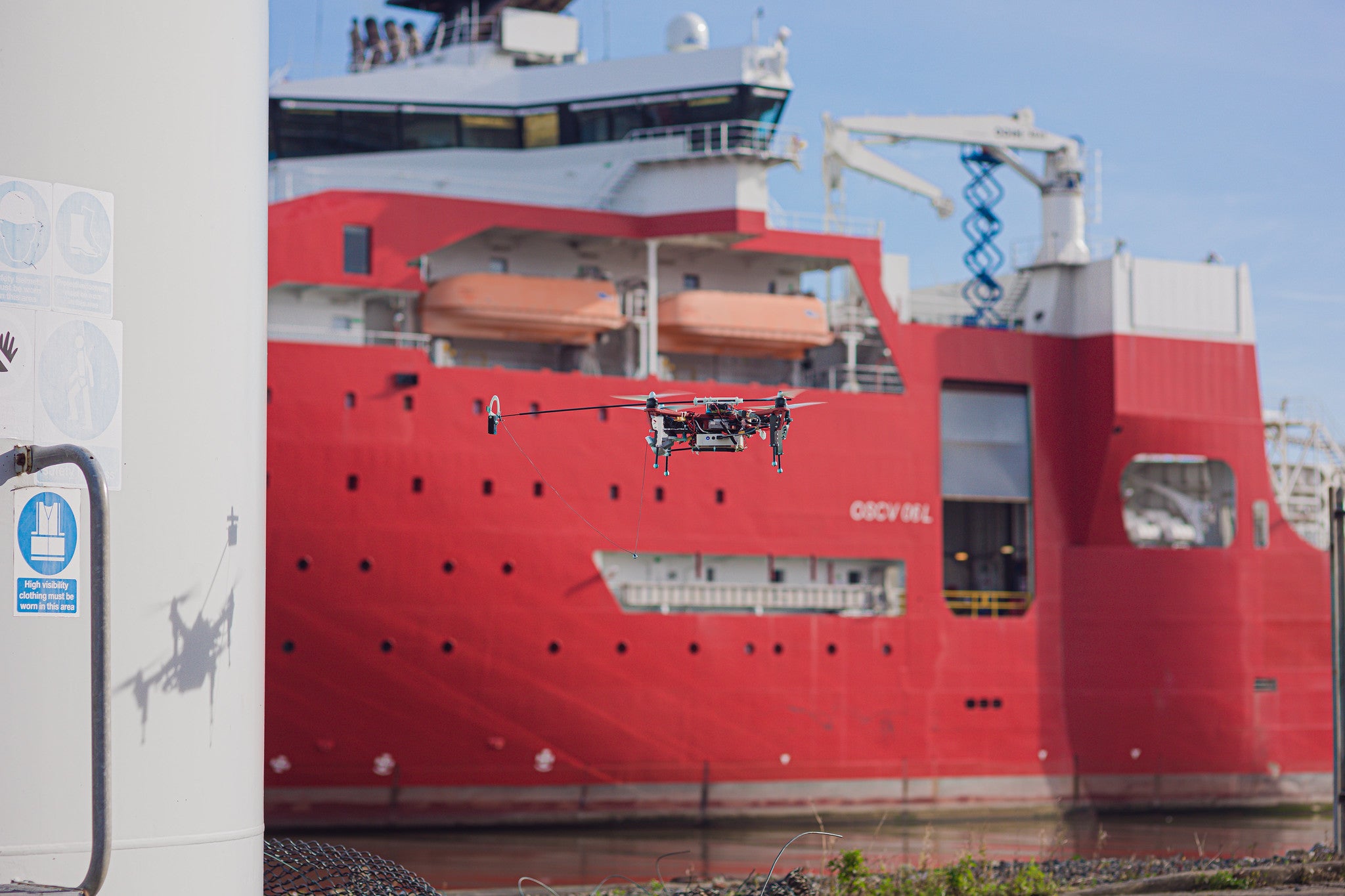
A university consortium led by the ORCA Hub, based at the Edinburgh Centre for Robotics, has showcased the new safety and environmental applications of its offshore robotics research. The event saw demonstrations of 16 autonomous and semi-autonomous robotic solutions at ORE Catapult in Blyth, near Newcastle.
Unveiling the latest results from its research, the Hub demonstrated the applications of its work in a renewable-themed showcase, reflecting the growing importance of renewable energy to the UK energy mix, with Imperial College London director of aerial robotics Dr Mirko Kovac speaking.
“Drones are currently used to visually inspect offshore wind turbines, but these inspections are remotely controlled by people on-site at the offshore location,” he said. “Should an area of concern be found, technicians are required to carry out further inspection, maintenance or repair, often at great heights and therefore in high-risk environments.”
Kovac added that the use of the showcased drones can also “remove the need for humans to abseil down the side of turbines, which can be both dangerous and expensive.”
Removing humans from hard to reach and dangerous work environments is one of ORCA’s objectives, which the hub claims as achievable by robotic solutions.
Other demonstrations included an integrated multi-sensing device for deployment in large collectives called Limpet. This technology can be used on or around an offshore asset for integrity monitoring and it can replace the need for multiple sensors to be used for integrity monitoring on wind turbines.
How well do you really know your competitors?
Access the most comprehensive Company Profiles on the market, powered by GlobalData. Save hours of research. Gain competitive edge.

Thank you!
Your download email will arrive shortly
Not ready to buy yet? Download a free sample
We are confident about the unique quality of our Company Profiles. However, we want you to make the most beneficial decision for your business, so we offer a free sample that you can download by submitting the below form
By GlobalDataORCA Hub director and professor at Heriot-Watt University David Lane said: “Events of this type are designed to bridge the gap between industry and academia to accelerate the impact of university research. By using the excellent facilities at ORE Catapult, we have taken the results of our latest research out of a laboratory environment to allow industry to see its application in their world.
ORCA Hub is a collaboration led by the Edinburgh Centre for Robotics and involves a partnership between Heriot-Watt University, the University of Edinburgh, Imperial College London, the University of Oxford and the University of Liverpool. It was established as a part of the UK’s government £93m Research & Development funding on “Robotics and AI for Extreme Environments” through the Industry Strategic Challenge Fund (ISCF). The hub specialises in developing robotics and AI technologies for the inspection, repair, and maintenance of offshore energy platforms.
The use of robotics in the manufacturing and inspection of energy equipment has gained popularity, especially as it can improve the efficiency and accuracy of operations and reduce the cost of energy constructions. Some recent examples of robotic innovations in this field are the pipleline inspection robot Cirris X, the equipment repairment robot CISBOT and the solar cell “p-type monocrystalline perc” which holds the new record for solar cell efficiency at 23.45%.




